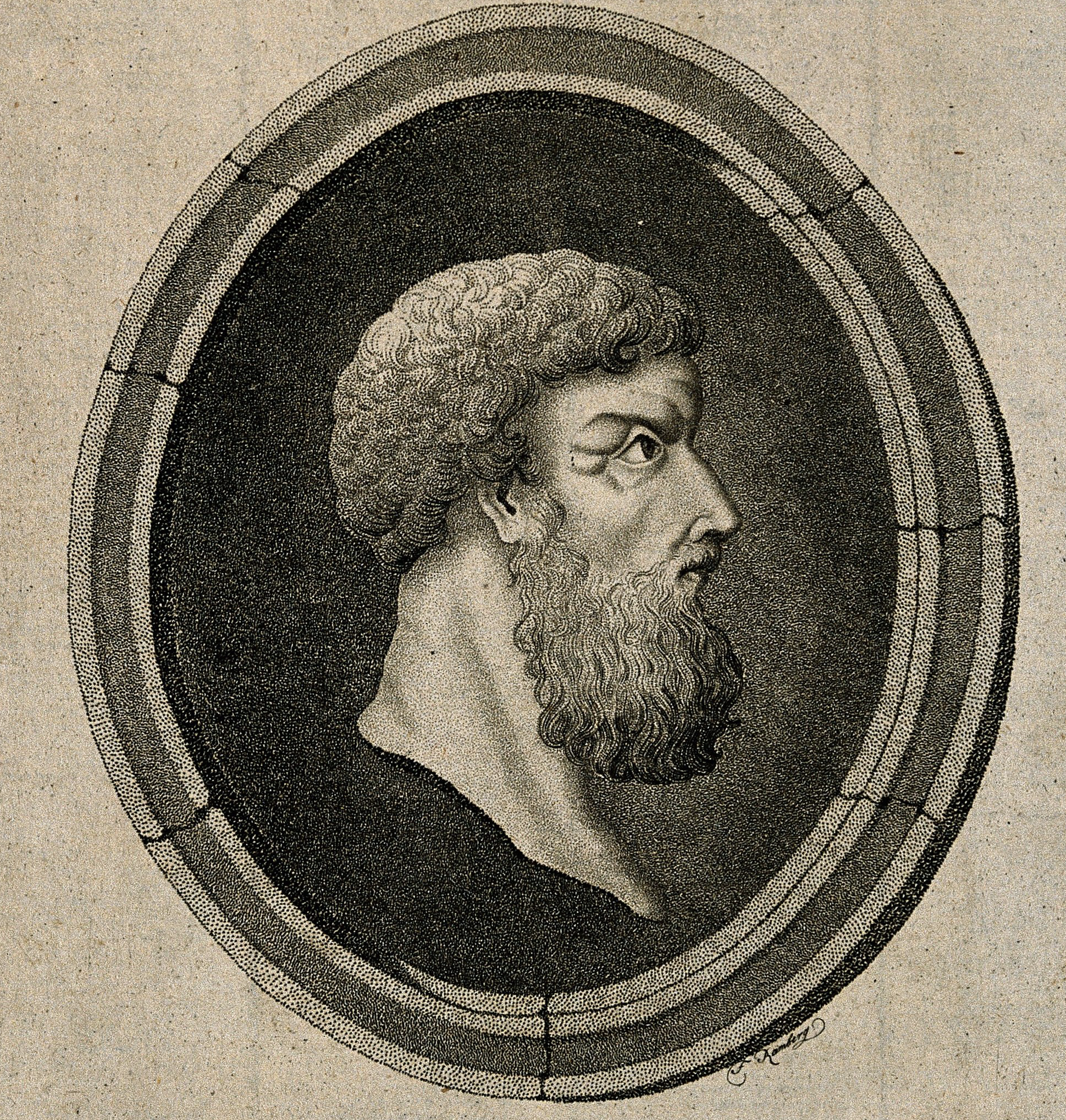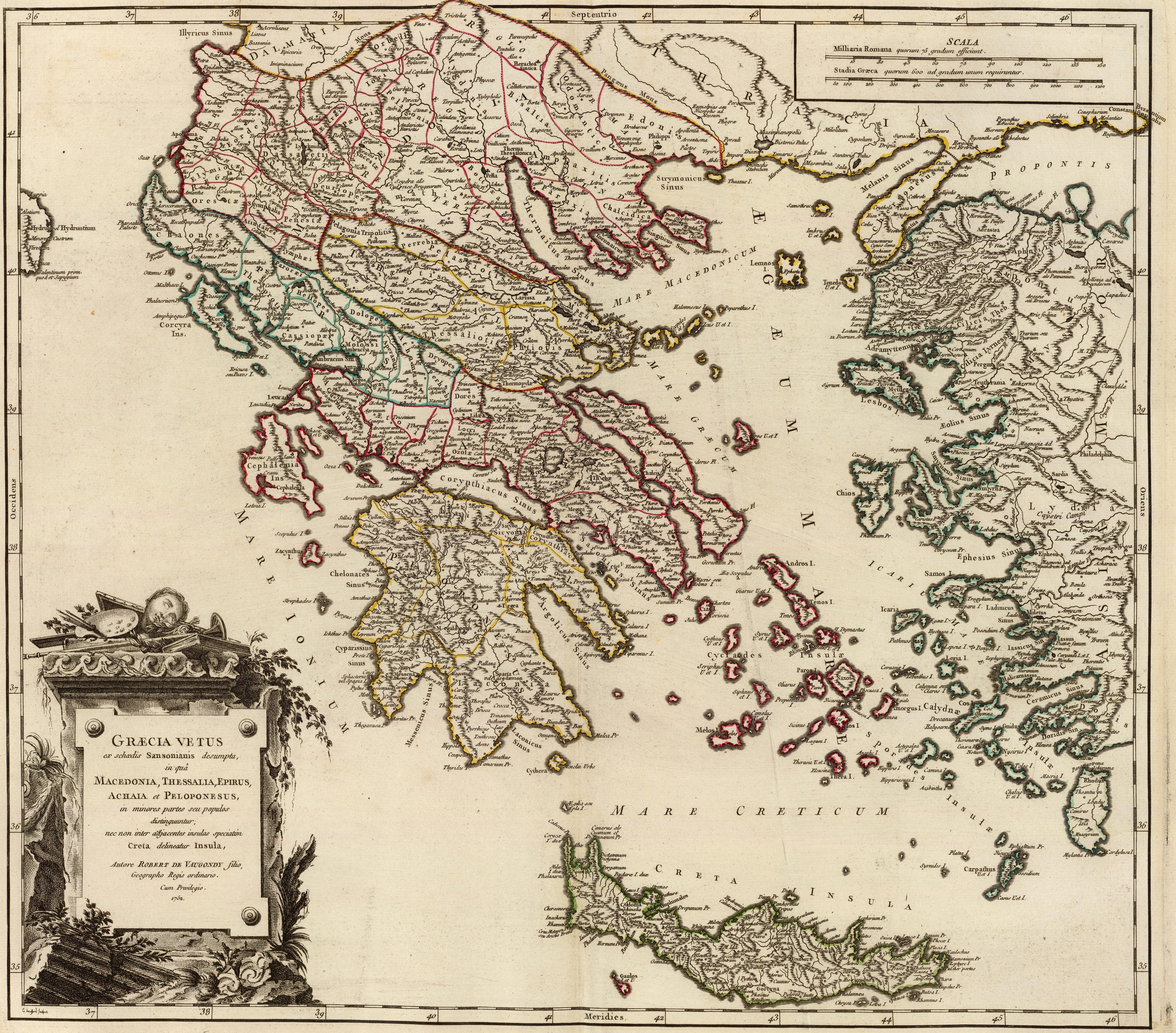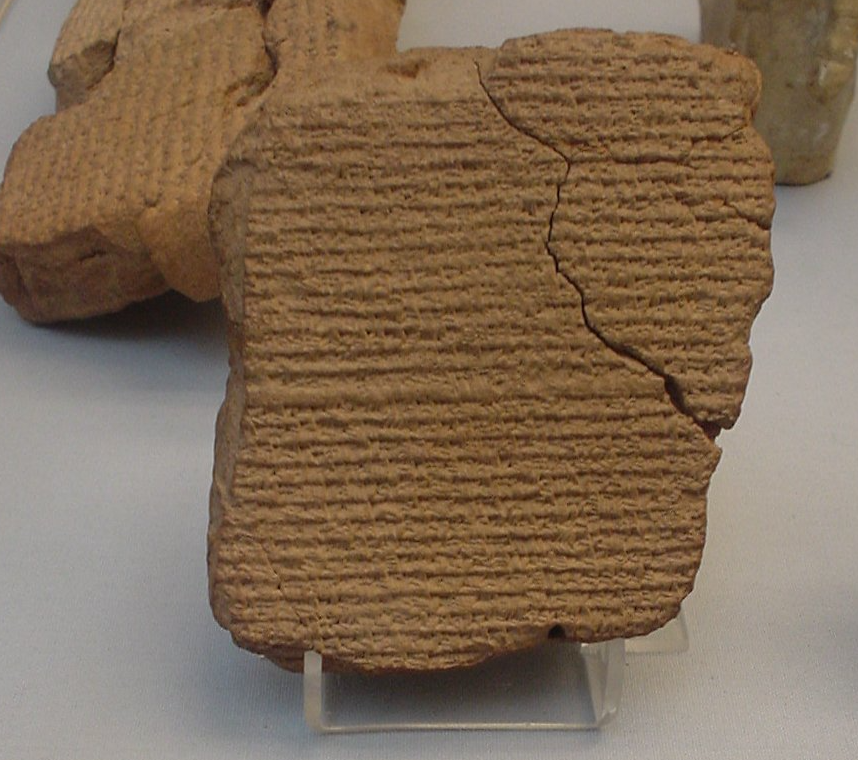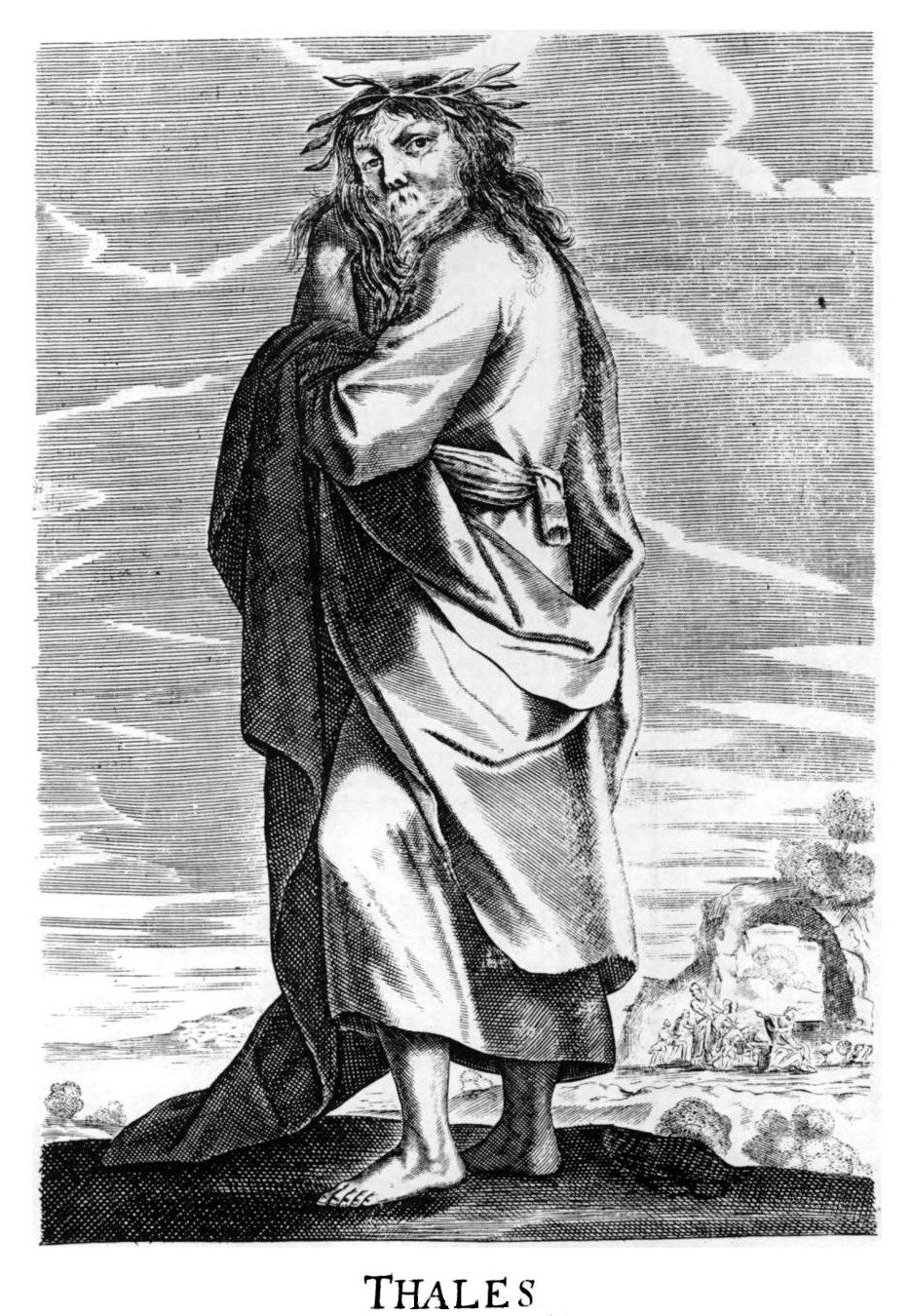Was the First Eclipse Prediction an Act of Genius, a Brilliant Mistake, or Dumb Luck?
It is hard to predict an eclipse when you think the world is flat.
The year was 585 B.C., and the Lydians and the Medes had been warring for half a decade in what we now know as Turkey. No clear victory was in sight. Sometimes the Lydians were on top, on other occasions, the Medes seemed to have matters in hand. Once they even fought a battle in the dead of night. But, in the sixth year of their war, as they brandished their arms on the battlefield, something amazing happened. The skies began to darken. The moon passed in front of the sun. The armies, astonished, lay down their weapons—and called a truce.
This story comes to us via Herodotus, the Greek historian, who lived about a century after the fight. What’s perhaps more remarkable about this story is the line that follows it: “Thales of Miletus had foretold this loss of daylight to the Ionians, fixing it within the year in which the change did indeed happen.”
The ancient philosopher Thales of Miletus had no access to the scientific knowledge or equipment to successfully predict a solar eclipse. As a result, this story has puzzled and divided classicists and scientists for centuries. Was it preternaturally sophisticated astronomy, a myth, or just a happy accident?

Researchers believe that the eclipse Herodotus describes over the battlefield is the one that took place on May 28, 585 B.C. Its path ran from Nicaragua, over the Atlantic, then across France and Italy—and, finally, Turkey. Thales’s home, the ancient city of Miletus, on the Mediterranean coast, is just outside the path of totality. He would have seen an impressive partial eclipse from there. There are other eclipses around that time that are possible candidates, but none that would have plunged the Lydians and Medes into abrupt darkness in the way that Herodotus describes.
It is particularly strange, if the historian is to be taken at his word, that Thales predicted the year of the eclipse, rather than the exact date. In fact, wrote mathematician Dmitri Pachenko in the Journal for the History of Astronomy, “if one can predict an eclipse at all, one can predict it to the day.” Astronomy is an extremely precise science. If you know a major celestial event is coming, and where it will be visible, you’ll most likely have some precision about when it will take place. Thales, however, was at a marked disadvantage for making astronomical predictions. He didn’t know that the Earth is spherical—and seems to have thought of it as a flat disc, resting on water.

So how did he do it? A common suggestion is that Thales had coopted the expertise of the ancient Babylonians. Their astronomers, based near modern Baghdad, kept careful records of the sky, including how Venus, Mercury, the Sun, and the Moon moved in the heavens. In 1063 B.C., their records document a total eclipse “that turned day into night.” These records led them to discover what we now call the Saros cycle, which governs the recurrence of eclipses. After three 223-month Saros series, eclipses do return to the same geographic region, but they are a complicated way to make an eclipse prediction. At any given moment, there are approximately 40 Saros cycles taking place at once, carrying on for over 1,000 years. As old sets of cycles end, new ones begin. Understanding them enough to be predictive, at the very least, requires the knowledge that the Earth is round and accurate, detailed observations—not to mention accounting for those missed eclipses that take place on cloudy days.
In 585 B.C., Mesopotamian astronomers hadn’t yet figured out how to use the Saros cycle to predict eclipses with any accuracy. Further, a number of scientists have attempted to predict the May 28, 585 B.C. eclipse using Saros cycles: It just doesn’t seem feasible based on the data that would have been available to Thales.
Whatever Thales’s method, it appears to have worked only once. There’s no other record of him successfully predicting an eclipse, or of him passing information about them to any of his many students. This suggests one of two things: Either the method wasn’t replicable (because it wasn’t scientific), or the prediction didn’t happen at all.

It’s entirely possible that Thales “predicted” the eclipse in a way that seemed scientific, but was actually wrong. That, at least, is the theory shared by scientists Willy Hartner and Dirk Couprie, though the two differ on how he might have done it. In 1969, Hartner made a list of 29 solar eclipses that Thales might have been able to see around that time. There are patterns among these 29, but it’s unlikely Thales would have been able to understand them. What he might have done, Hartner thinks, is used those patterns to predict the May 18, 584 B.C. eclipse—just less than a year after the one that stopped the battle. When the eclipse came almost exactly a year early, Thales may have shrugged his shoulders and taken credit for being close enough.
Couprie, on the other hand, assumes an even luckier accident. It’s possible, he suggests, that Thales spotted a lucky, though ultimately random, pattern in a number of regional eclipses that took place during his lifetime. “Did Thales really predict the solar eclipse?” asks Couprie. “The answer must be: no. The regularity he saw was only a lucky coincidence.” If he’d tried to predict other eclipses later on using the same method, he would have failed miserably—perhaps explaining why none of his students or successors were able to do so. In fact, the next time an ancient thinker successfully predicted an eclipse was sometime around 150 B.C.: Hipparchus, the man we now credit with discovering trigonometry.

There is, however, one more option. Thales was an astronomer and philosopher, but he was also a kind of primordial public intellectual—even a bit of a celebrity. Aristophanes says that any man who had “great practical wisdom” was known as a “veritable Thales,” while Aristotle tells a story of Thales predicting a good year for olives, and then cornering the market on olive presses, “thus demonstrating that it is easy for philosophers to be rich, if they wish, but it is not in this that they are interested.”
Thales did feats of mathematics that might have looked like magic to his contemporaries, including calculating the height of the pyramids from the length of their shadows. He was a legend. It’s possible, then, that his famous prediction was, too. People so readily accepted his claims—that magnets have souls because they make things move, that earthquakes happen because the Earth is floating on water, that all things are full of gods—that it wasn’t much of a stretch to believe he could have predicted mysterious happenings in the sky.




















Follow us on Twitter to get the latest on the world's hidden wonders.
Like us on Facebook to get the latest on the world's hidden wonders.
Follow us on Twitter Like us on Facebook